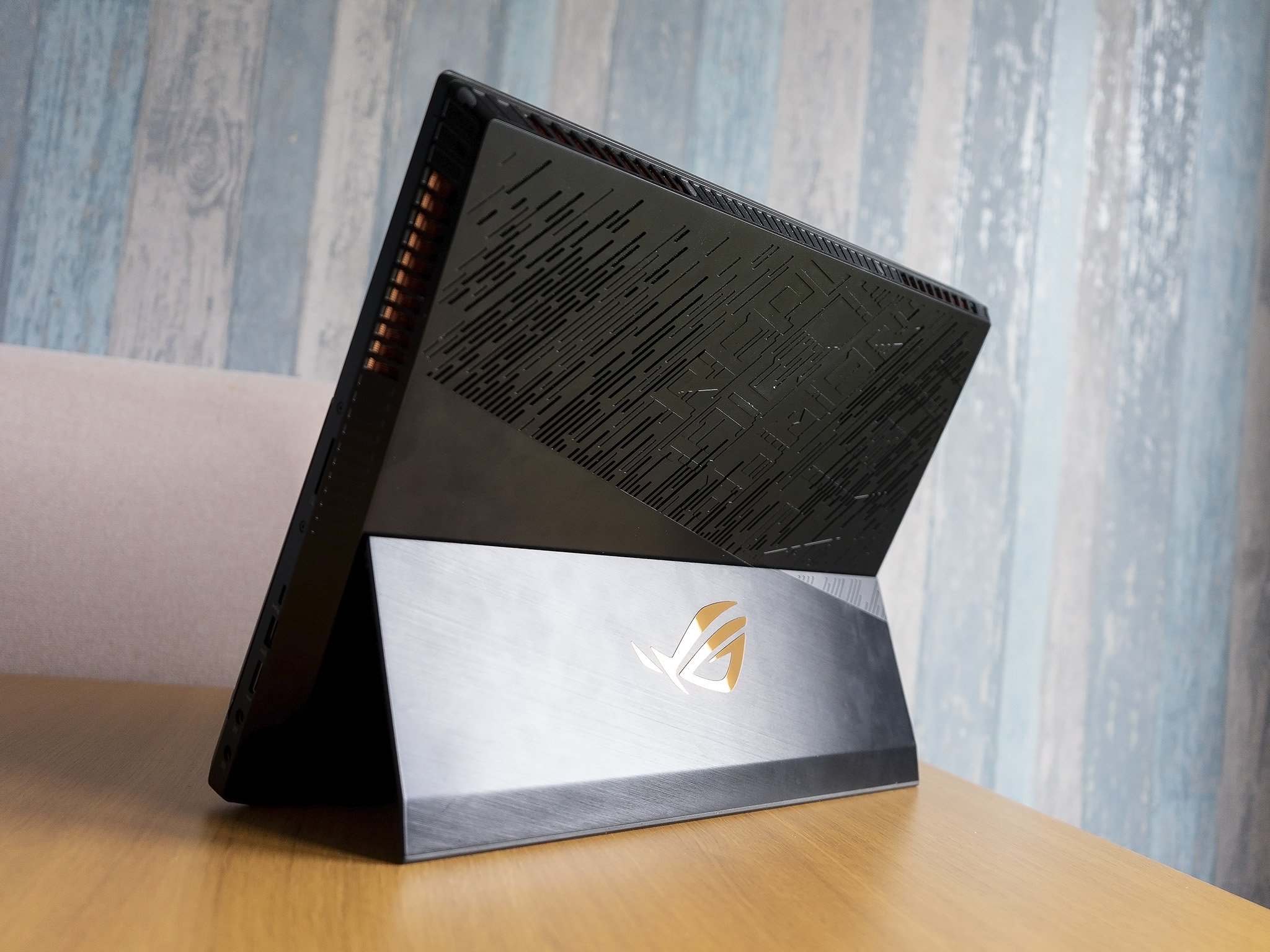

I love many things about ASUS as a company, but at the top of the list is that the Taiwanese hardware maker is never afraid of trying something new. Over the years, ASUS has genuinely broken the mold, with mobile devices like the Padfone and the Zenfone Zoom, or more recently with laptops like the outstanding ZenBook Pro with its extra display panels.
Not to be left out, the Republic of Gamers branch has had a go at creating a wow moment with the ROG Mothership, an utterly bananas, incredibly expensive, impractical, but absolutely amazing gaming machine. I hesitate to use the word laptop, though it does have a battery, and it's hard to suggest a particular 'need' it fills.
But quirks, price and questions on who it's for aside, one thing stands tall. The ROG Mothership is a simply incredible piece of hardware, and it's perhaps an early glimpse at a future for gaming portables I can get behind.
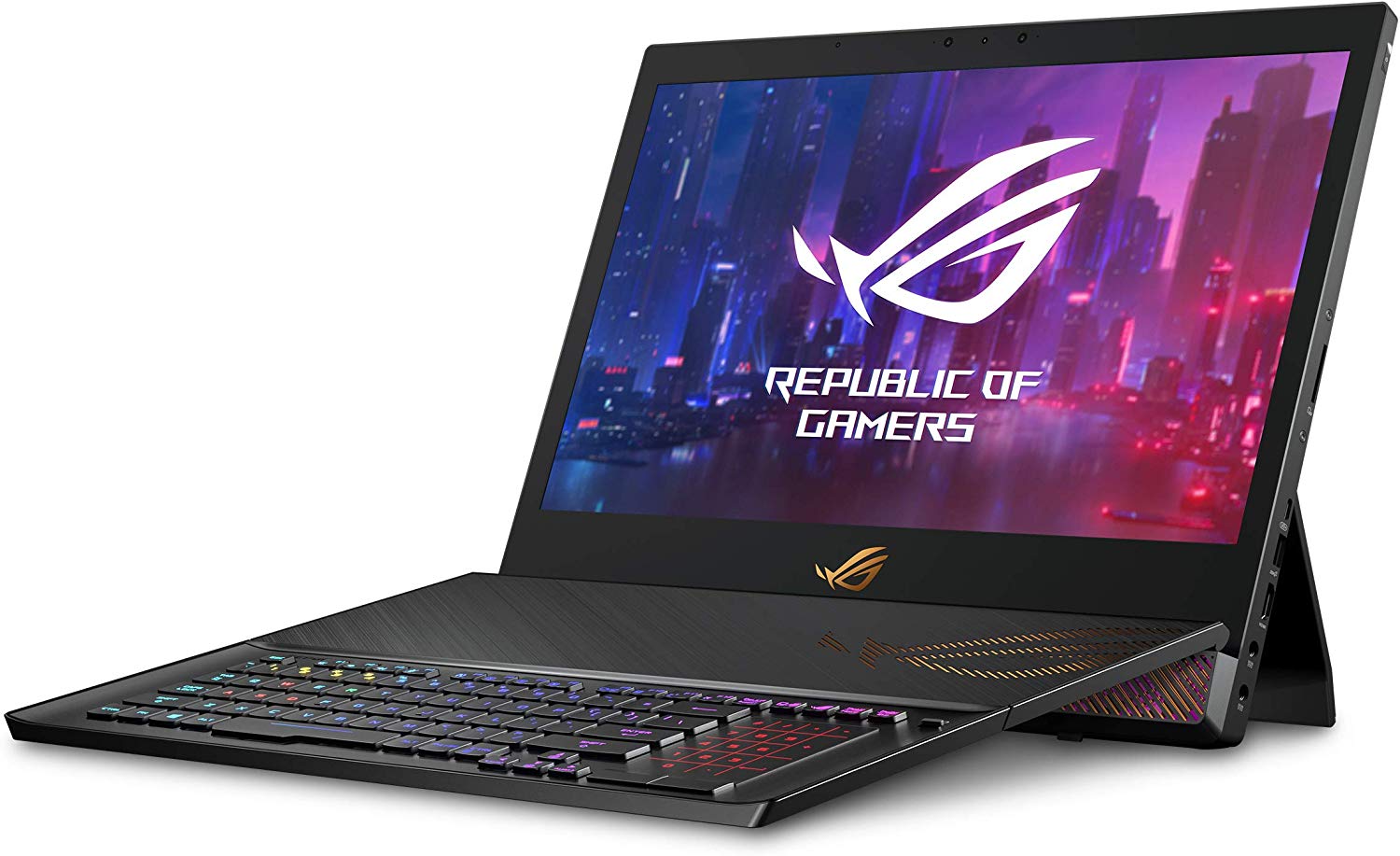
Bottom line: A breathtaking machine, but ultimately at over $6,000, not something you can easily recommend for purchase.
Pros
- Insane performance
- 4K display with NVIDIA G-Sync
- Desktop-grade RTX 2080 GPU
- RAID 0 NVMe SSD array
- 64GB of RAM
- User upgradeable storage
Cons
- Very expensive
- Display limited to 60 Hz
- Odd trackpad
- Can't charge keyboard separately
ASUS ROG Mothership hardware: It has everything
Video hands-on with the Mothership after its first announcement at CES 2019.
So, you're going to spec up the ultimate gaming laptop, are you? Just what does that look like then?
Here are the key specs for the ROG Mothership. Hold on to your socks, so they don't get blown off.
- Intel Core i9-9980HK (8-core, 16-thread, 45W TDP)
- 64GB 2666MHz DDR4 RAM
- 3 x 512GB NVMe SSD in RAID 0
- 17.3-inch 4K display
- NVIDIA RTX 2080 8GB (desktop class, 200W TDP)
- Detachable keyboard
- Built in kickstand
The ROG Mothership is so powerful that since I've had it in my possession, my own gaming rig has been cowering in the corner, fearful. Where to begin digesting it?
All the latest news, reviews, and guides for Windows and Xbox diehards.
I'll start with the only thing that I don't like on the spec sheet: the display. It's not that it's bad, per se, because it isn't. It's very nice, and very impressive, with not only 4K resolution but also NVIDIA G-Sync, HDR, and 100% Adobe RGB support. It looks fantastic, and the games look absolutely stunning,
But the decision to go with a 4K panel has led to the refresh rate being limited to 60 Hz it seems. On something with an 8-core CPU and an RTX 2080, that's like getting into the driving seat of a Lamborghini and driving everywhere at 30mph. Sure, on an external display, you'll be able to take full advantage, but this a portable machine. Razer has a 120 Hz 4K display option on the latest Blade Pro, so to see the ROG Mothership hampered to 60 Hz is a letdown.
Everything else about the ROG Mothership is absurd, though. The GPU, for example, isn't one of NVIDIA's trimmed down, power-efficient MaxQ designs. It's the full fat, 200W desktop RTX 2080, which in part explains the two enormous power bricks it takes to provide enough juice to the Mothership to keep it powered up.
So basically, this is a desktop PC in something much more compact. The CPU is a laptop part, at least, but it's the best you can currently get for this kind of machine, with the 8-core i9-9980HK.
It's also interesting that ASUS went with RAID 0 across a trio of NVMe SSDs over having one single, high-capacity drive. What you, the user, gets is a 'single drive' of 1.5TB with high performance (more on that below), with data being split across all three drives simultaneously. The downside is that if one drive fails, you lose everything, just as you would if you only had one drive in the first place. So, you'll still want to be careful with backups.
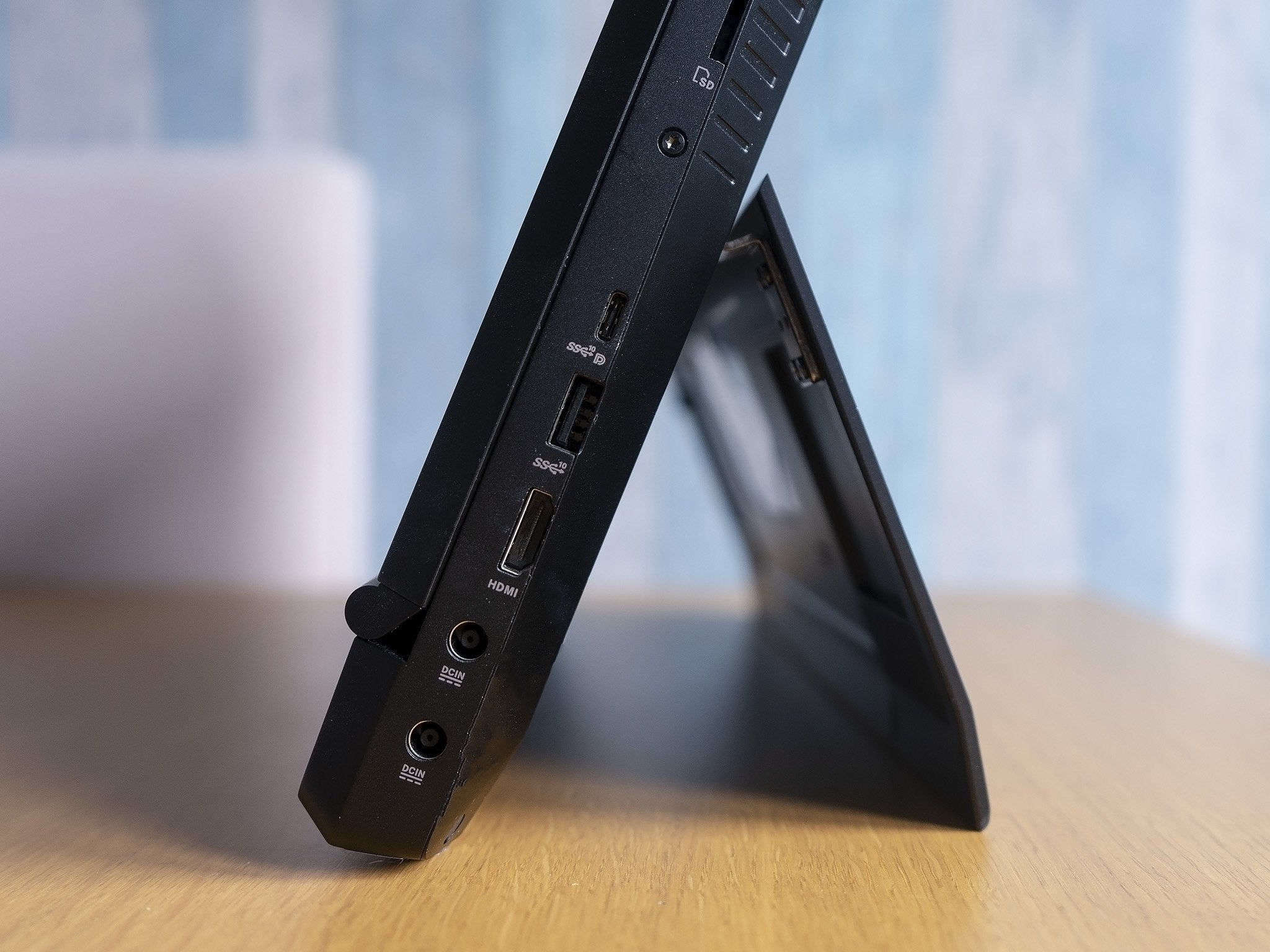
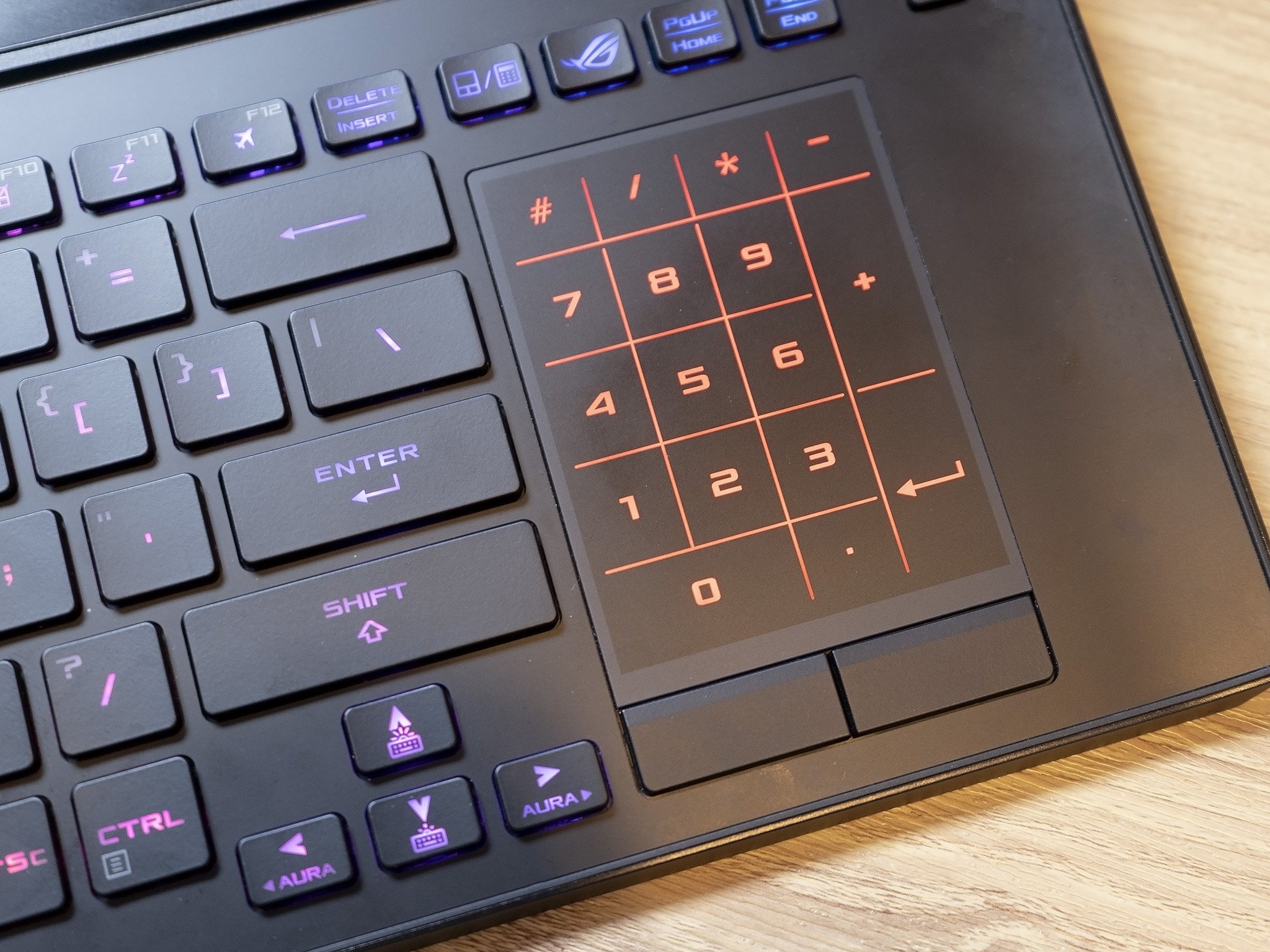
So, the insides are pretty bananas. But it's what's outside that first catches the eye. It's fair to say that the ROG Mothership looks like a Surface Pro for gamers. The kickstand and detachable keyboard give it a form factor we've not seen before in a gaming laptop, and naturally, there's also RGB galore.
The keyboard operates very similarly to that on the Surface Pro as well. It attaches via magnetic pins and has an angled position for typing. Where it differs is that you can detach it entirely, switch it to wireless mode, fold the excess away, and use it as you would a regular desktop keyboard.
For typing, it's pretty good, and you eventually get used to the right-aligned trackpad, which can also double up as a number pad. It's too small, though, or rather, it feels that way with its vertical design. In practice, it's about the same size as the one on my MateBook D, but the lack of width makes it awkward to use. So you'll want a mouse. It also feels like an oversight that you can't charge the keyboard separately; you have to connect it back to the Mothership to top it up.
It's not exactly portable with its two giant power bricks!
The big elephant in the room, though, to this "Surface Pro for gamers" is that it isn't very portable. It's also why I hesitate to call it a laptop. It's not a 2-in-1, since it has no touch display, and it's so large and heavy, accompanied by its two enormous power bricks, that you can hardly call it a laptop. Sure, it has a battery, but it doesn't last long, and no bag I own can accommodate the Mothership and all its belongings.
This is a portable all-in-one PC. That's the fairest way to describe it. Assuming you have the means to take this on the road with you, you'll have unprecedented power, while at home, it's every bit the high-powered desktop gaming rig with all the ports you need to create a full setup, including Thunderbolt 3.
ASUS ROG Mothership performance: Got it where it counts
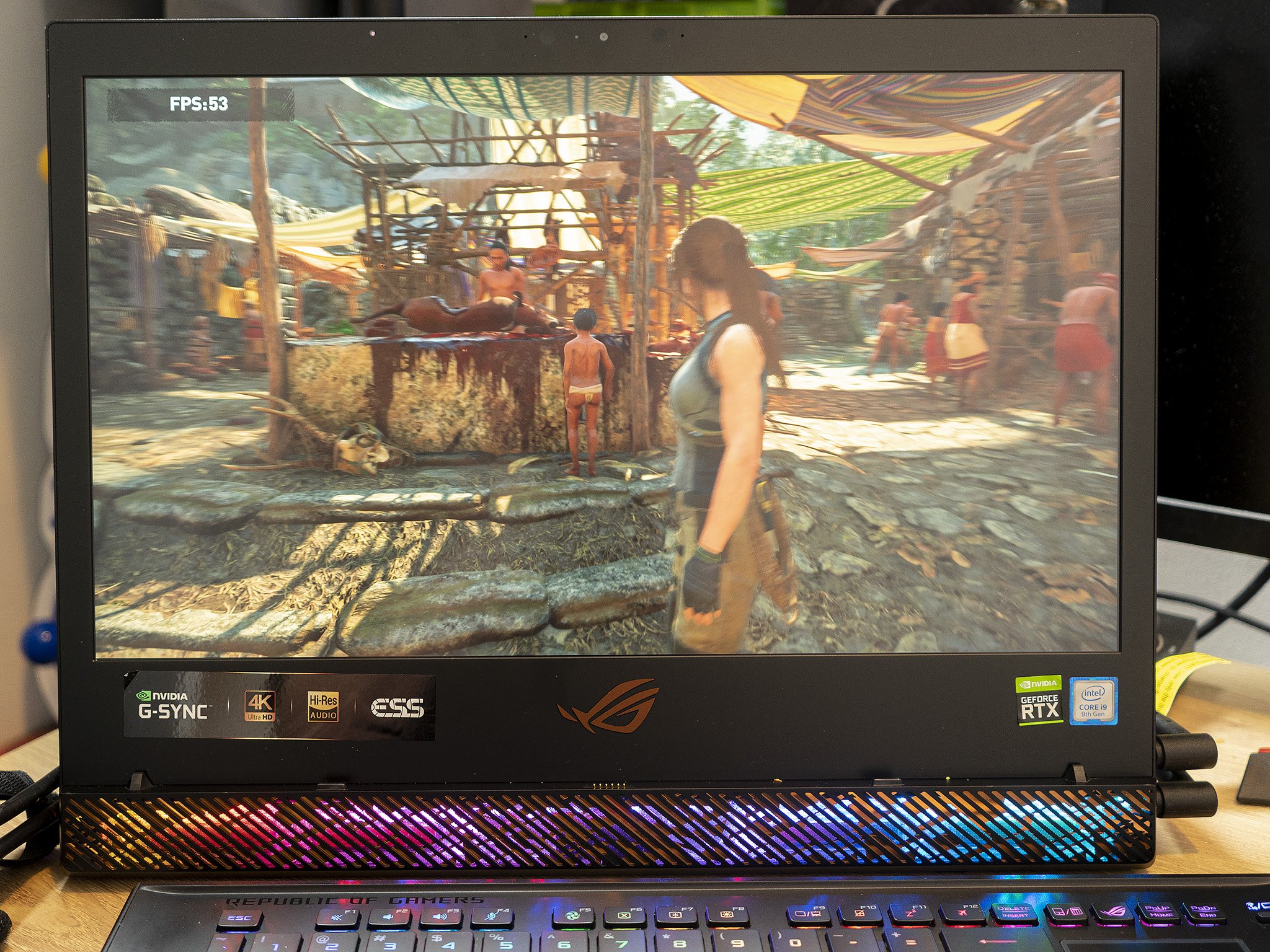
If you're even remotely interested in the ROG Mothership, you know it's packing the sort of performance you usually reserve for desktop PCs. The specs speak for themselves, and whether you're working, gaming, or creating, the Mothership will take your tasks, chew them up, spit them out and then ask for more.
ASUS has included some apps that can help you tweak your experience a little, but I'm not a fan of such things personally, and it's not as if you really need to squeeze any more out of this thing. It has an RTX 2080, after all.
Top class performance isn't limited to the GPU, though. For starters, the storage is exceptional. Write speeds are limited to essentially the write speed of a single SSD (which is still impressive), but the read speeds are sufficiently off the charts, thanks to how RAID 0 works.
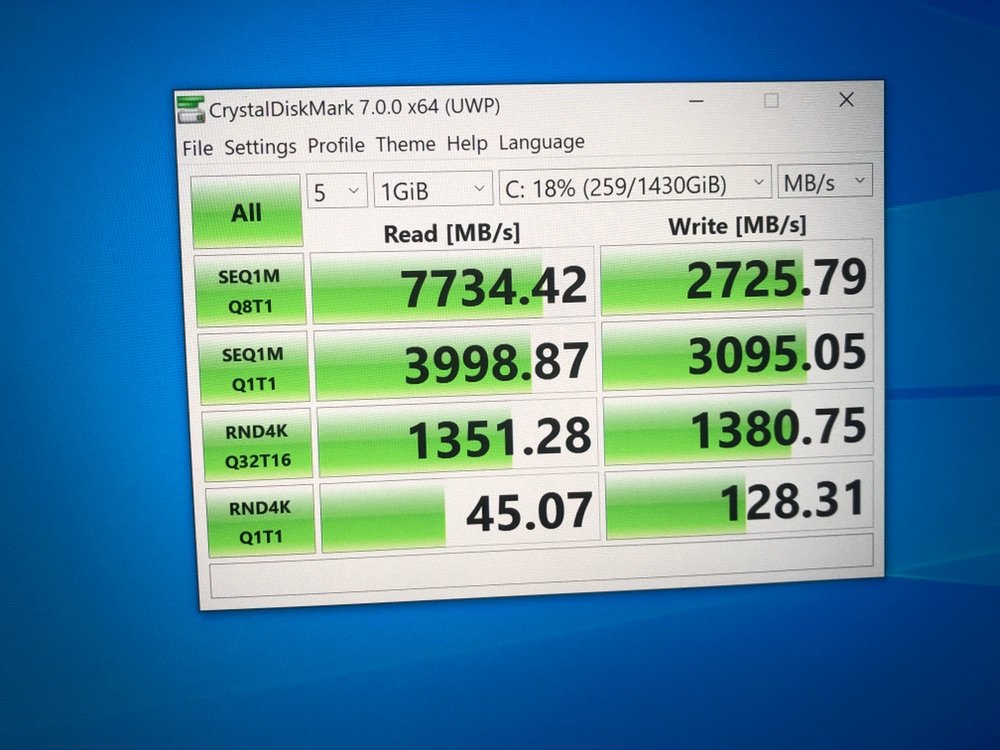
RAID 0 certainly helps the Mothership extract the very best from its trio of NVMe drives, and it's hard to pick fault anywhere. Whether you want your games to load quickly or you're handling large files, the Mothership is in the upper echelons.
The CPU is also impressive, though perhaps less remarkable since you can also find it inside laptops like the Dell XPS 15. Nevertheless, the Geekbench 4 and Cinebench scores are as excellent as you'd expect from such a chip. The Core i9-9980HK scores about the same my 6-core desktop Ryzen 5 3600X in Cinebench R20, so it's not too shabby at all.
- Geekbench 4 - 5520 (single-core), 29484 (multi-core)
- Cinebench R20 - 3461
But games are why you're going to be interested in the Mothership, so what's it like there, then? Predictably, excellent. However, only if you're not shooting for 4K. Sure, you can play most current games at 4K, and usually at more than 30 FPS, but it's a bit of a waste turning down settings. The display is still reasonably small in the grand scheme of things, so I've sacrificed resolution for these tests and, in most cases, went with one step down from 4K in the respective titles, usually around 2560 x 1600 and RTX was turned off.
- Metro Exodus (DX12 Ultra @ 2560 x 1600) - 51.6 FPS avg (31.4 FPS low)
- Shadow of the Tomb Raider (DX12 Highest @2560 x 1600) - 74 FPS avg
- Borderlands 3 (DX11 Ultra @ 2048 x 1152) - 77.6 FPS avg
- 3DMark Fire Strike Ultra - 11,155 (Better than 80% of results)
- F1 2019 (DX12 Ultra High @ 4K) - 68 FPS avg (60 FPS low)
- Ashes of the Singularity (DX11 Extreme @ 2560 x 1600) - 66.5 FPS avg
Naturally, being an RTX GPU, you also have the opportunity to experience ray tracing in all its glory. As on any other PC with an RTX card, you'll take a performance hit overall. Still, games like Control and Metro Exodus look stunning, especially paired with a high-quality display like the one on the Mothership.
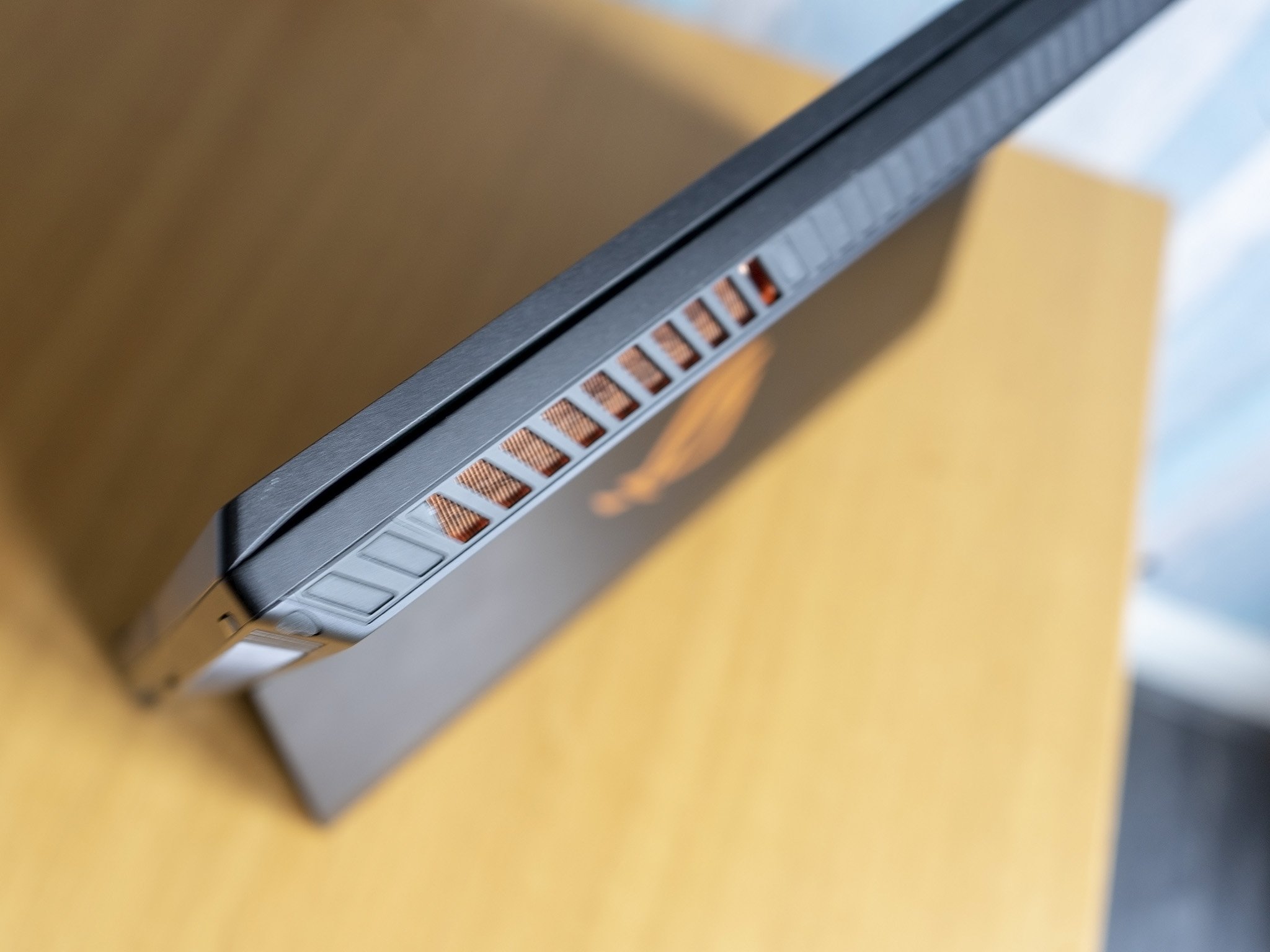
Thermals aren't too much of an issue when gaming, either, though obviously, compared to a desktop, it runs hotter and much noisier. More importantly, I haven't seen any examples of throttling when pushing it hard in gaming, and the location of the exhaust vents on the top of the device means no hot air lingering around near your hands. Stressing the CPU with Intel's Extreme Tuning utility saw temperatures go a little over 80C (176F) where power limit throttling began, but when gaming, the CPU rarely reaches these extremes.
Of course, the design also means that even if you are using the included keyboard, it never gets hot, so all is peachy. As a form factor for a portable gaming machine, the Mothership makes a huge amount of sense. No matter how good the cooling is on a traditional gaming laptop, the heat is being generated below your hands; in the Mothership, it simply gets pushed out of the top and into the atmosphere.
Should you buy an ASUS ROG Mothership?
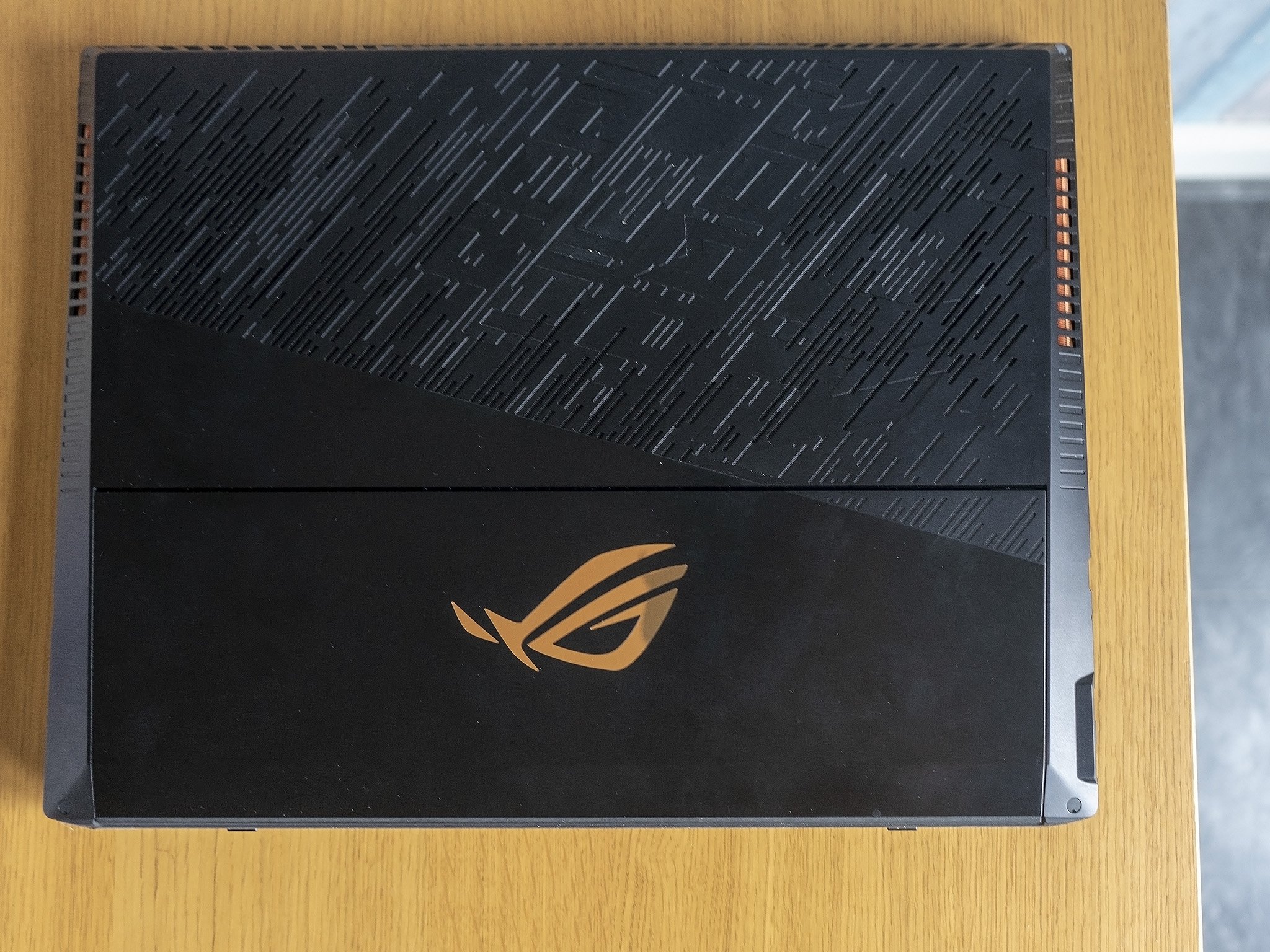
Honestly, no. Because in the U.S., you'll be paying in excess of $6,000. Anything that costs that much isn't something you can just recommend because it's good. How many of us have ridiculed the price of Apple's new Mac Pro?
In many ways, the ROG Mothership is the most bizarre PC I've reviewed, probably ever. I absolutely adore it, despite its impracticality and some of the issues I find with it like the trackpad, not being able to charge the keyboard separately and the foolish decision to have a 60 Hz display in something like this.
But giving something a high review score usually means it's a product we recommend you buy. The ROG Mothership doesn't fall into that category. It's worthy of high praise because, despite its faults, it's a breathtaking portable gaming PC. But I'm not going to tell you to go out and spend six grand on one.
Instead, the way I see the ROG Mothership is as a tantalizing glimpse at a future for gaming laptops. The Surface Pro is an iconic device that has shaped an entirely new genre of portable PCs, and the Mothership shows that it's possible to squeeze a gaming laptop into that kind of design.
A breathtaking portable gaming PC
This is an ultimate scenario, an absolute technical exercise where the best of the best has been squeezed inside. But imagine a future product from ASUS that has this same form factor, but trims back a little, perhaps using an RTX 2060 or a GTX 1660, a 6-core CPU and 16GB of RAM. One that is smaller, more portable, and crucially, only has one power adapter.
That's a future I could get behind for sure. And hopefully, this is just the beginning.

Richard Devine is the Managing Editor at Windows Central with over a decade of experience. A former Project Manager and long-term tech addict, he joined Mobile Nations in 2011 and has been found in the past on Android Central as well as Windows Central. Currently, you'll find him steering the site's coverage of all manner of PC hardware and reviews. Find him on Mastodon at mstdn.social/@richdevine

